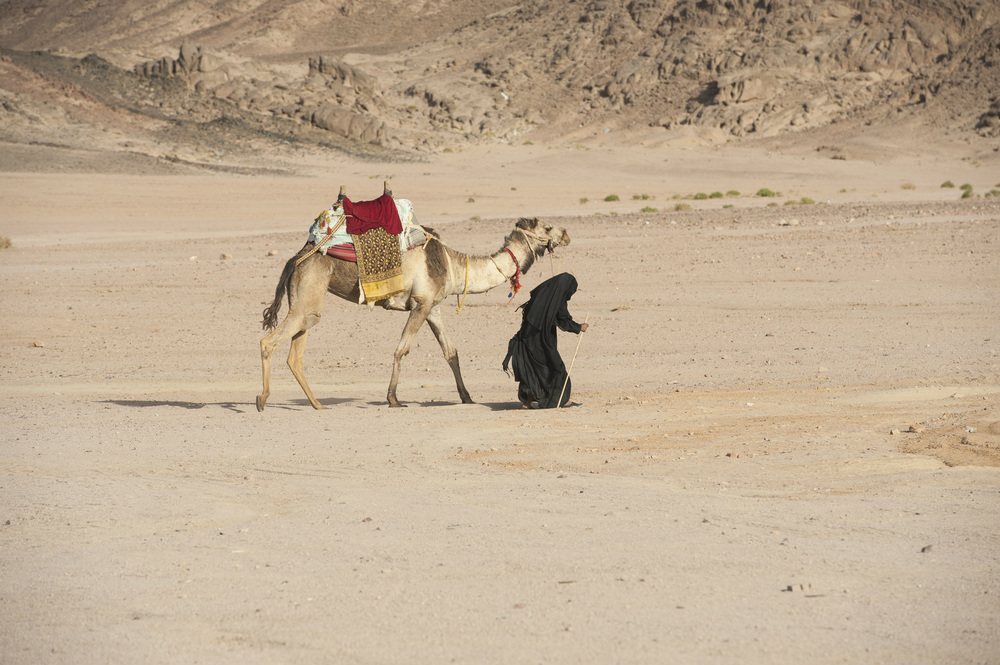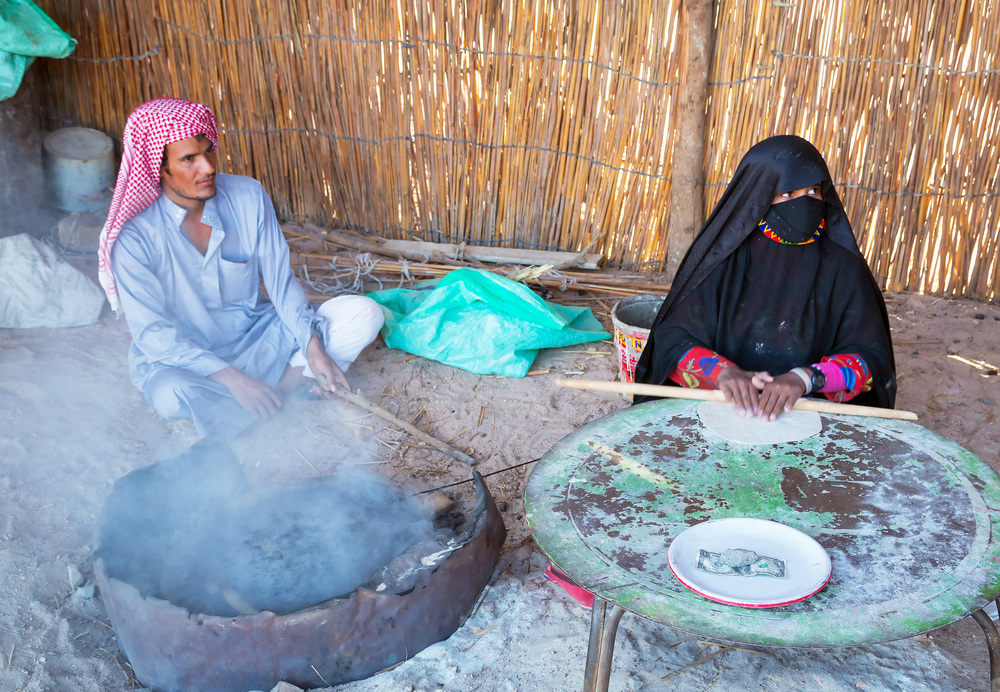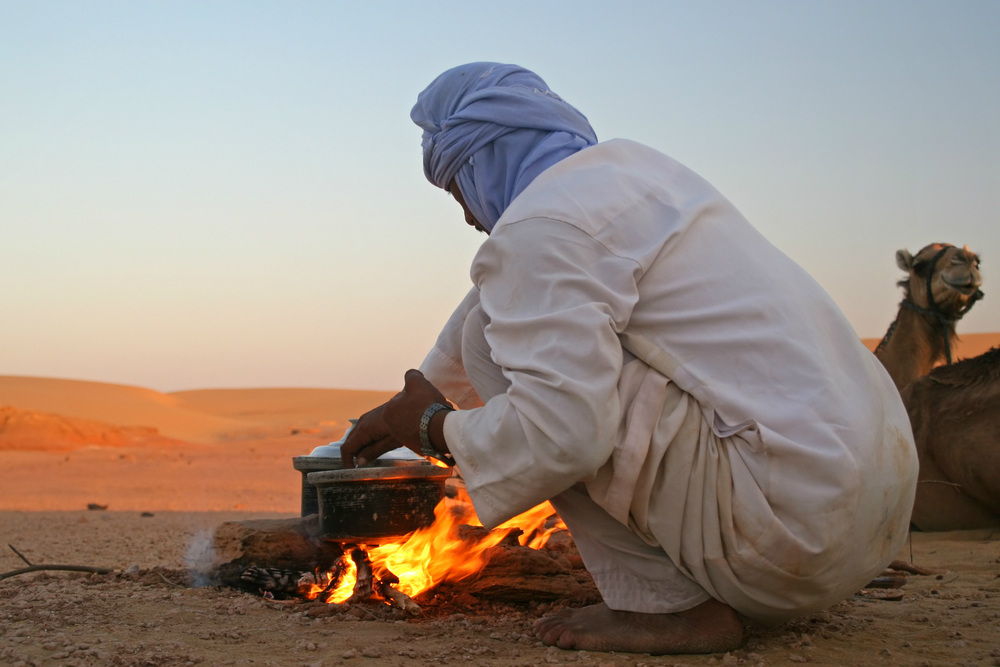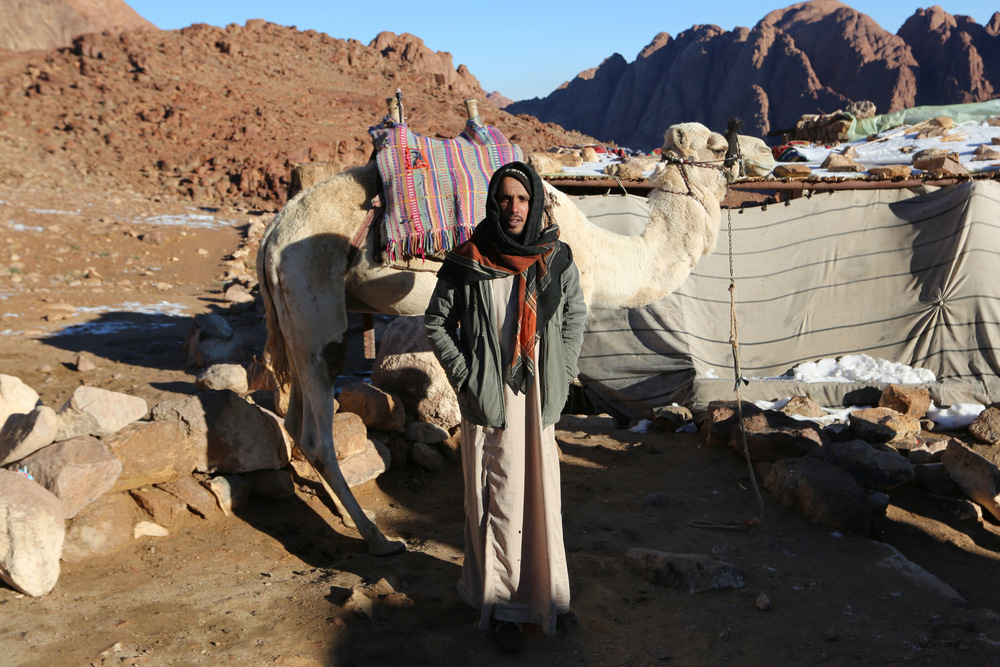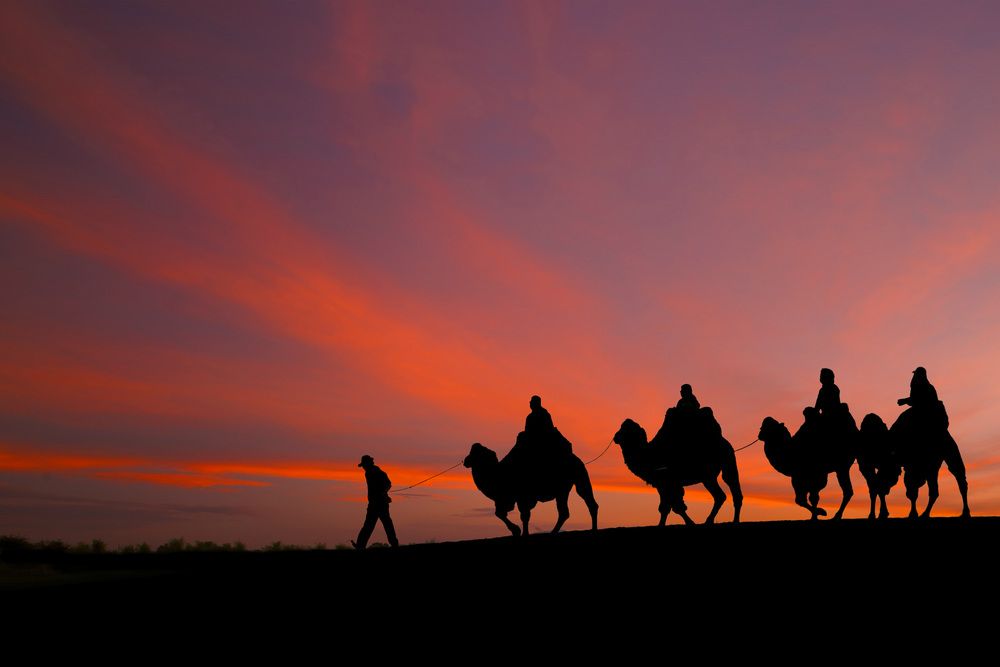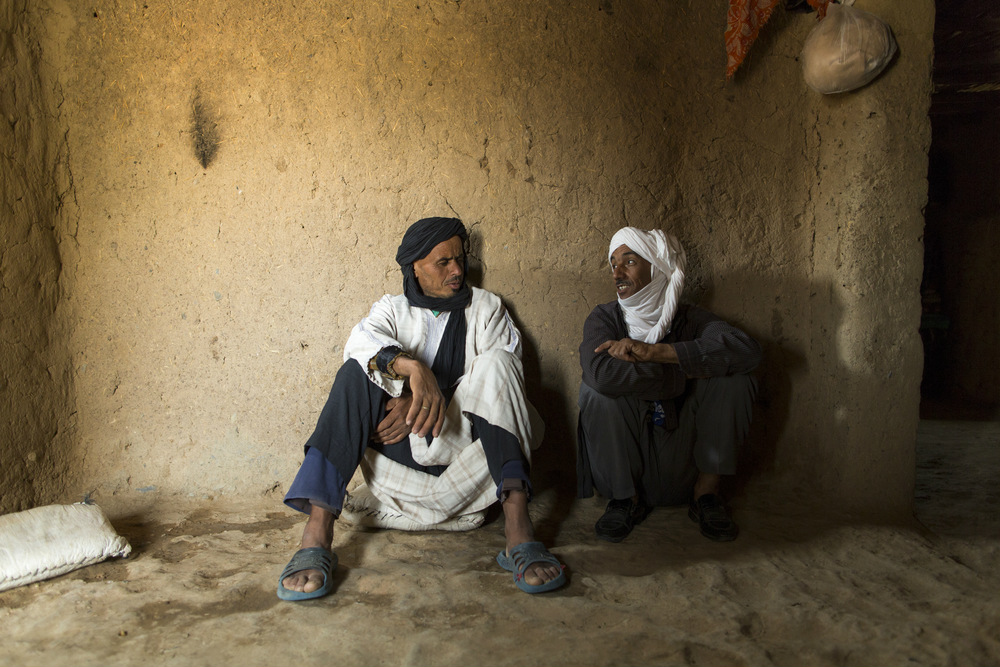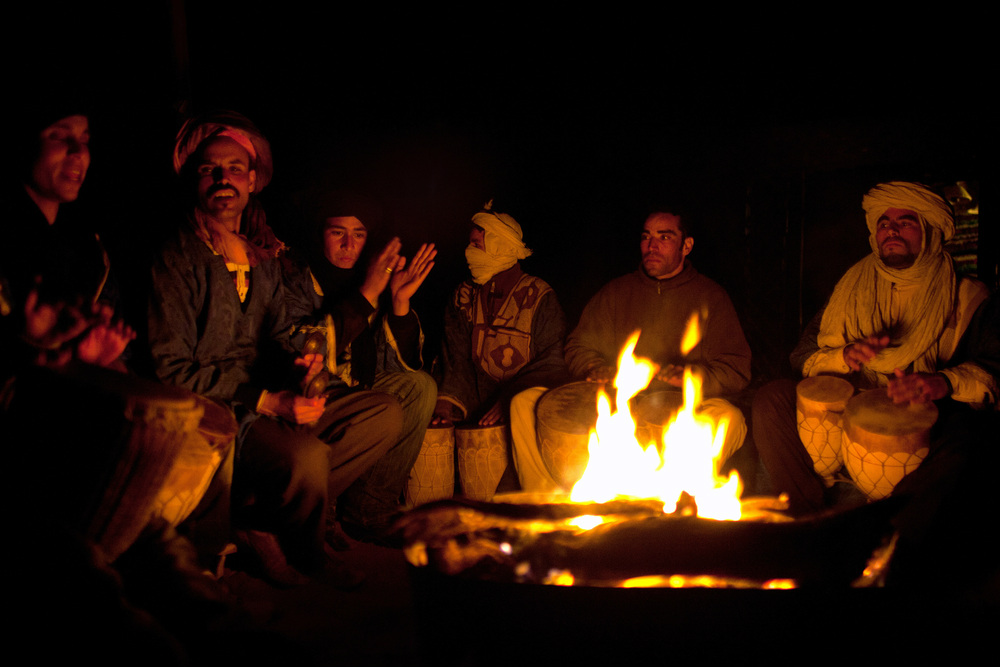The Bedouin people are often associated with the Middle East, but there are many that also live in North Africa. In fact, they live in virtually every north African country, including Morocco, Tunisia, Algeria, Libya, Egypt, and Sudan (home to the largest population). Because most of the traditional Bedouin live in the desert, their interactions with tourists are often minimal, making learning about their culture in person somewhat difficult. Here are 10 things you didn’t know about the Bedouin people of North Africa.
Their name literally means desert dweller
The name Bedouin comes from the Arabic word “Badawiyyini” and literally means desert dwellers. The Bedouin people historically came from the Arabian and Syrian deserts but now are widespread across the deserts of North Africa.
They are particular about eating etiquette
Meals in Bedouin homes are usually done around one large tray with men on one side and women on another side. Like many cultures around the world, they only eat with their right hand. While the plates might be full of food, most Bedouin people eat fast and modestly. If you ever go into a Bedouin tent on a desert excursion, be sure to ask your host about eating etiquette — they’ll be happy to show you.
Most still maintain their culture
Even the Bedouins that have moved into cities to work regular day jobs still hold strong to their traditions. They keep the traditional dances, camel races, music and poetry alive in the home and through regular festivals that occur throughout the year such as the Dahab Bedouin Festival.
It’s common to get facial tattoos
Facial tattoos are a traditional cultural practice among the Bedouin. Many wear it as a protective amulet that’s permanently worn on the body, which is quite different than how westerners use tattoos. It’s also forbidden in Islam to have a tattoo, so it’s generally only the nomadic Bedouins that will have these.
Many still practice traditional medicine
Bedouin culture attributes illnesses to a multitude of causes, including an imbalance of the elements of the body, germs, and even spirit invasion. Some of the traditional remedies include the wearing of amulets, carrying inscriptions and dozens of herbal remedies. However, the Bedouin aren’t like some groups that shun modern medicine, if the traditional efforts don’t work, they will usually seek western medical treatment.
They often don’t have land rights
When you move around a lot, it might be hard to stake your claim to land. Since many are traditionally nomadic and live in the desert, the countries they live in sometimes don’t give them land rights. This was particularly true in Egypt’s Sinai Peninsula, where much of the area they were living in was taken over by tourist operators and hotel chains between 1980-2000.
They are divided by the animals they herd
Traditionally, the Bedouin people are grouped based on the animal species that they make their livelihoods from. The camel nomads live in large tribes in the Sahara and Arabian deserts, the sheep and goat nomads mainly live in Jordan and Iraq, and the cattle nomads mostly live in Sudan and are called Baqqarah.
Camels are considered a gift from God
Among the Bedouin that live in the Sahara desert, camels are considered a gift from god. Historically they weren’t only a method of transportation, they were also the main food source. While it might sound strange to western palettes, camel milk tastes surprisingly good, especially when you’re under the hot sun. Today, food is easier to come by, but many still drink camel milk out of tradition. It’s pretty hard to find in western grocery stores, but if you come across it, you should definitely give it a try.
There are many Bedouin dialects
While some Bedouin speak Arabic (especially in the Middle East), the tradition of Bedouin dialects is still strong in the Maghreb. There are four major varieties that exist in North Africa, including Sulaym in Libya and southern Tunisia, two versions of Hilal in Tunisia and Algeria, and Maqil in Algeria and Morocco.
There are very few nomads left
Although Bedouins were traditionally nomadic, there are very few that still exist. At the end of the 20th century, they made up less than 1% of the countries where they live due to modern technology infringing on their lifestyles. While many still might live in tents in the desert, they tend to stay put.
Want to discover the finer side of Africa? Sign up for our weekly newsletter.
